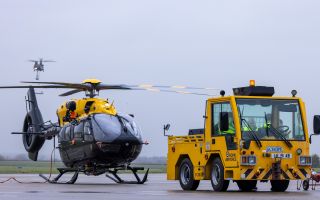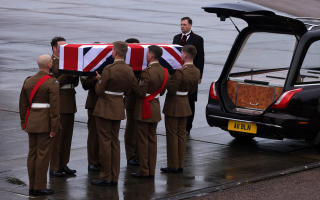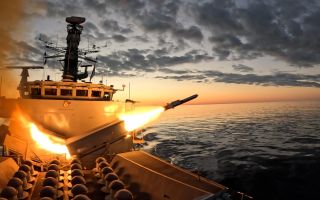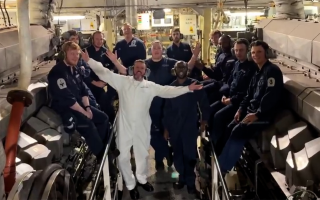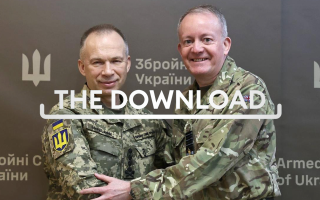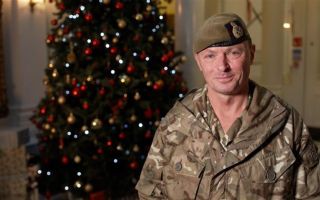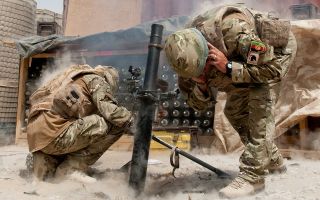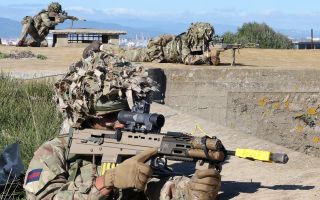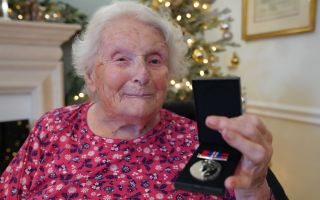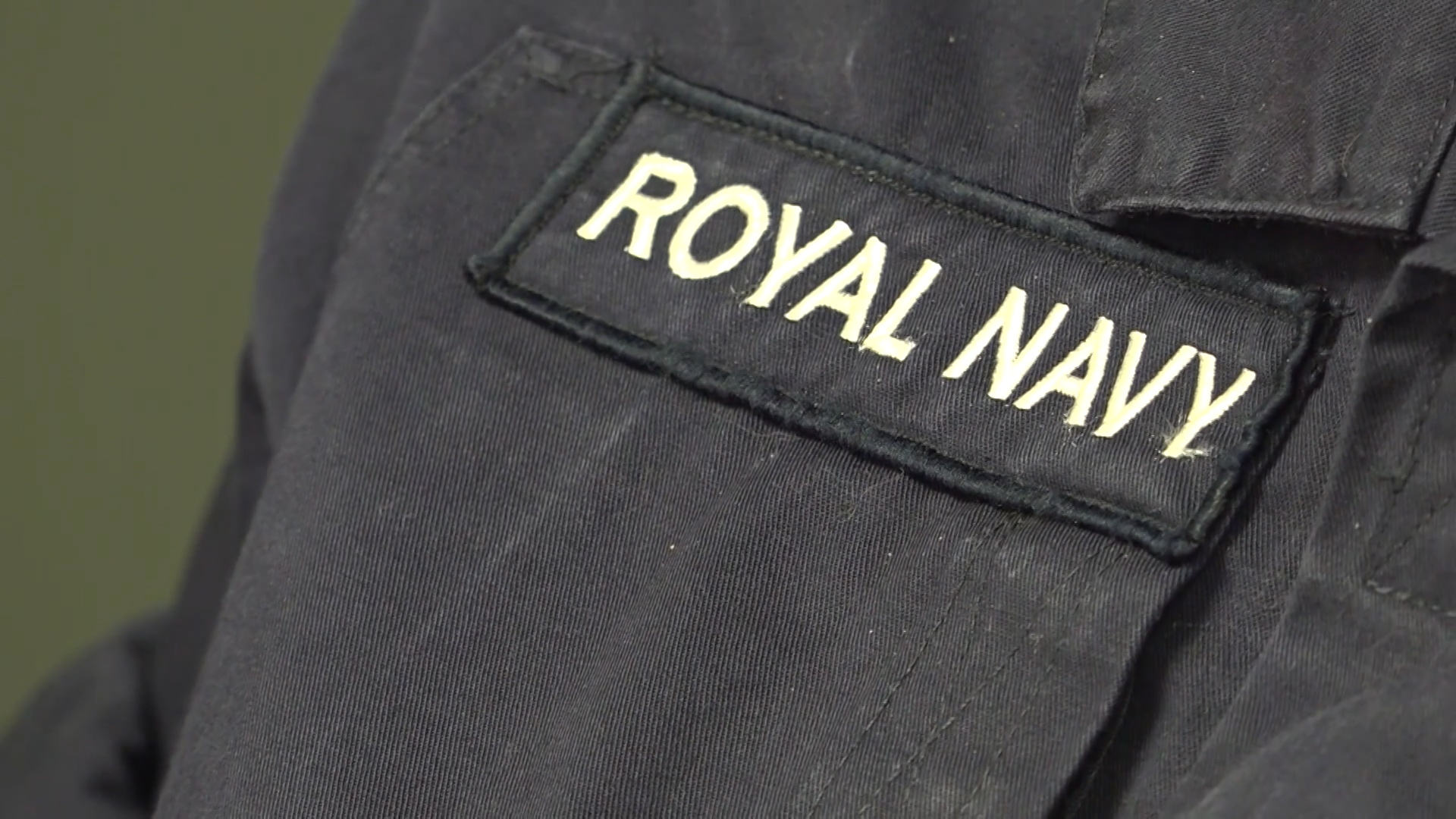
Royal Navy Slang - Do You Know Your Wets From Your Roof Rats?

Life in the Armed Forces has many attractive strings to its bow. After all, there have to be solid reasons why so many men and women in the UK opt for a career in the military over any other. Those reasons include the sense of adventure, quality of life and variety roles in the Royal Navy, British Army or Royal Air Force can provide.
But again and again, one word that crops up around why so many professionals find their purpose in the forces is comradery.
There is no workplace in Britain like the Armed Forces when it comes to comradery.
And part of that fundamental matter is little things like the unique lingo men and women speak in each of the three services.
Here, BFBS explores the specific terminology and language used by members of the Royal Navy.
This is all the gen on navy slang.
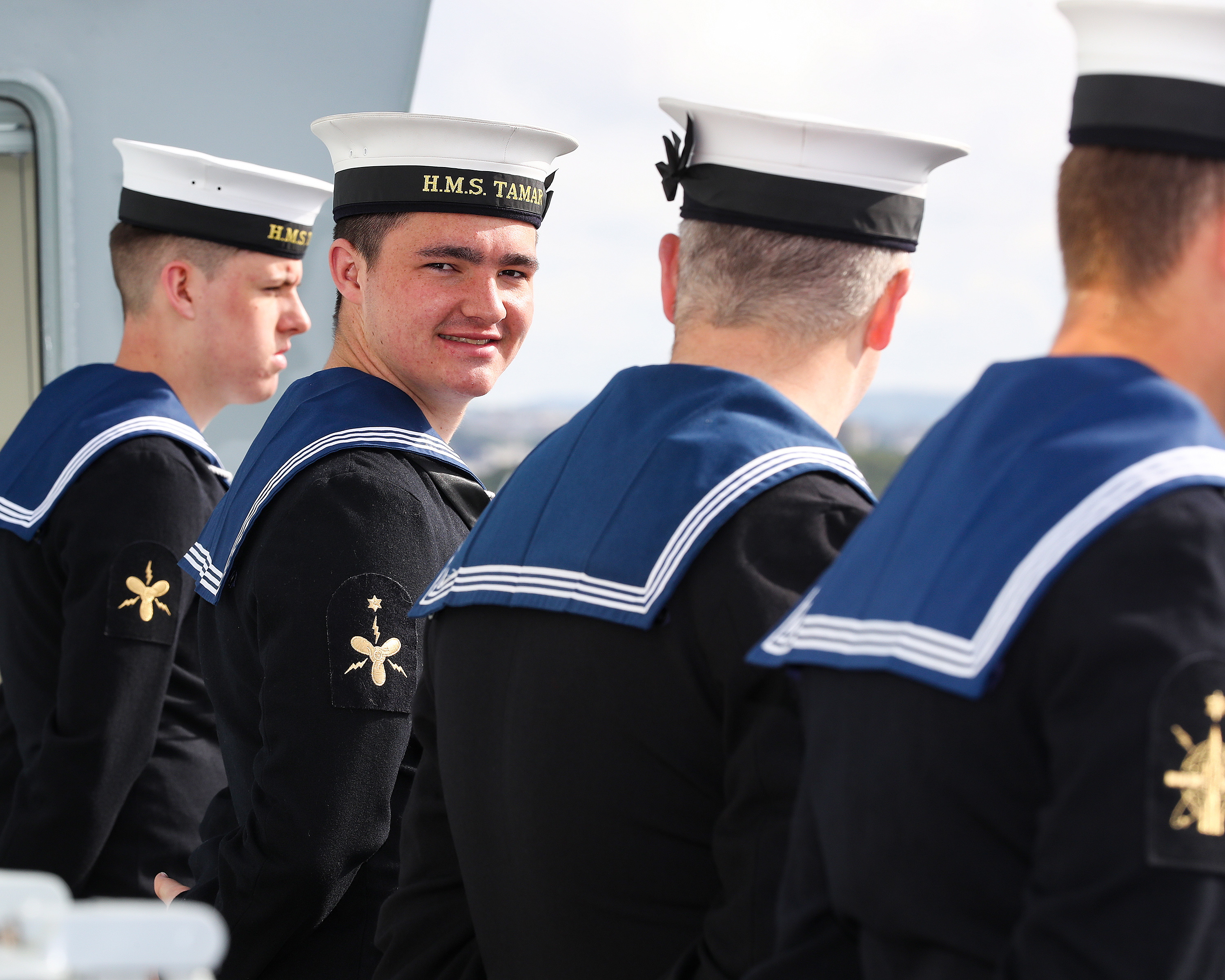
Does The Royal Navy Have Its Own Language?
In a word … yes.
Take a look at this – can you guess what it means?
"I prefer babies heads over bag meals, although really, I'm a bit of a nutty fiend."
'Babies heads' is navy slang for Steak and Kidney puddings. A 'bag meal' means packed lunch and 'nutty fiend' translates as somebody who likes to eat many sweets. So, the above navy-code sentence translates as:
"I prefer to eat Steak and Kidney puddings instead of packed lunches, although really, I am a big sweets eater."
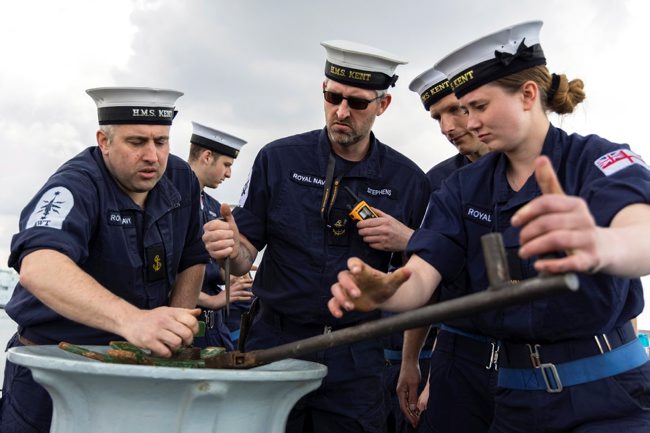
How Can British Military Slang Be Classified?
Writing in his paper 'English Military Slang: Definition, Means of Formation and Thematic Classification, PJ Mitchell considered the notion of "English military slang as a separate vocabulary" and it possessing "certain attributes."
The Tomsk State University scholar's research paper said:
"Slang is considered to be informal speech with evaluative, expressive and emotional connotations standing apart from literary language."
Mitchell proposed a model of classification of English military slang based on thematic groups, which were divided into:
Interpersonal relationships
- Everyday interpersonal relationships between military personnel,
- Interpersonal relationships between military personal depending on rank, position, armed service and service branch, and
- Relations toward military personnel and civilian populations of foreign countries.
The activity of military personnel
- Everyday activity and life of military personnel,
- Activity during armed conflict and exercise, and
- Leave and free time.
A person and his surrounding world
- Food,
- Clothing and uniform,
- Weaponry and military equipment,
- State of health and body parts, and
- Mood and mental state.
So prevalent is slang in the Armed Forces, Mitchell's paper concluded with a specific recommendation that future military interpreter courses should include modules dealing solely with British military slang.
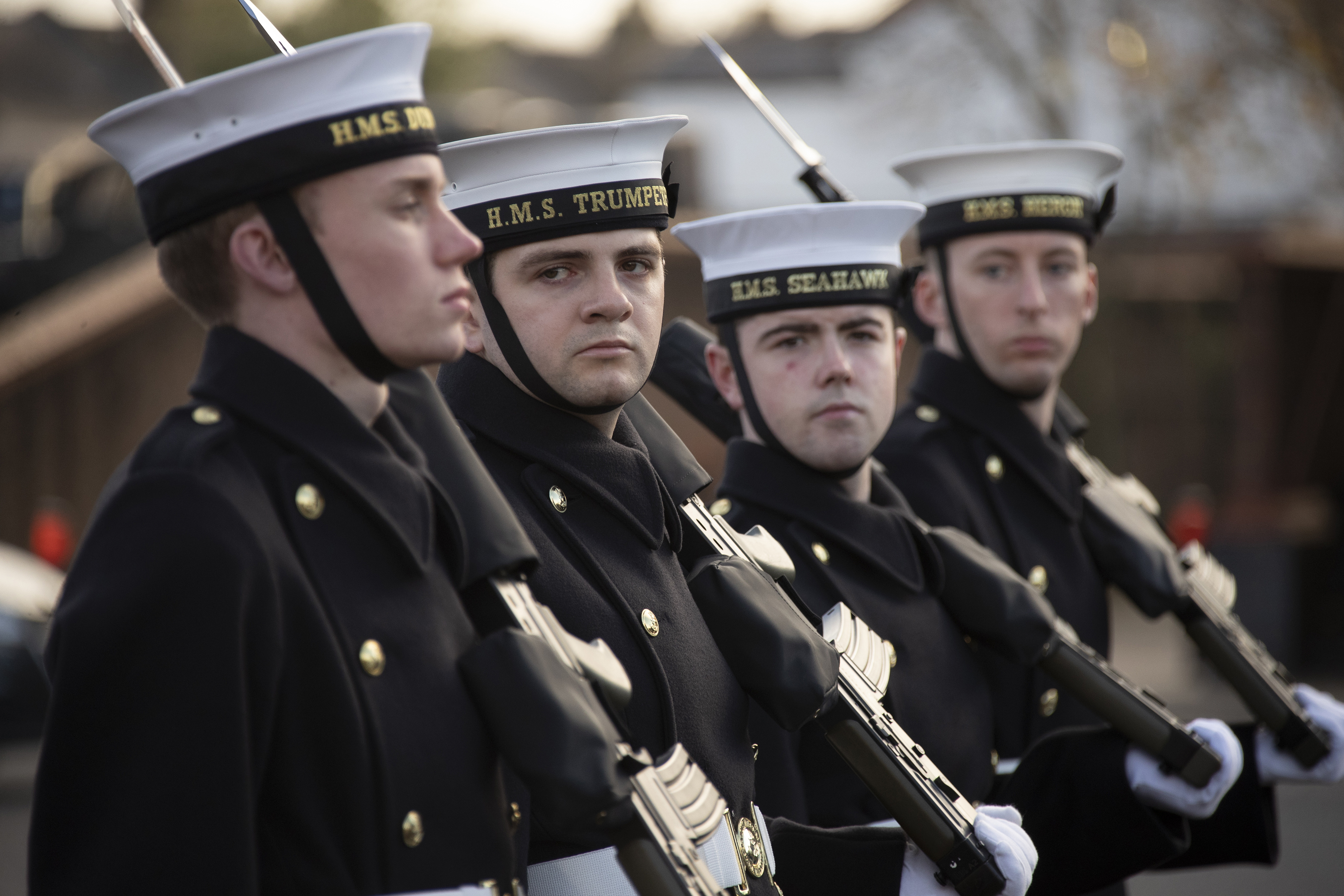
What Are The Most Common Navy Slang Words?
Here are some common Royal Navy-specific words and expressions.
Adrift To be late
Anchor-faced Somebody who extremely enthusiastic about their career in the Royal Navy
Bezzy Best mate
Bone Stupid
Bootneck Royal Marine
Chad Valley A piece of equipment that is generally not very good, or the lesser quality of what is available on the market
Crabby Dirty
Crabfat Somebody serving in the RAF
Dhobie Washing (as in laundry)
Dhobie dust Washing powder
Dose STDs/STIs
Flap Panic
Gash Rubbish (can be used for litter or something that doesn't work very well)
Gen Genuine - but also used to brief someone, or meaning study something in detail, as in 'gen up' or 'all the gen'
Heads Toilets
Jenny A member of the WRENs
Matelot Sailor
Minging To be drunk
NATO standard Tea or coffee with milk and two sugars
Necky To be particularly cheeky
Oppo A Royal Navy colleague
Pinged To be seen, typically when not wanting to be
Pit A sailor's bed
Roof Rats Aircraft handlers
Run ashore A night out – usually involving alcohol
Sad on To be unhappy or disappointed
Shippers An onboard colleague
Shitehawk A Seagull
Sprog A child
Sun dodger A member of the submarine service
Thin out To leave or to end one's day in work/duty
Tot A Rum measure
Wet A drink of something (tea usually)
Winger A mate
Woolly pully A service issued woolly jumper
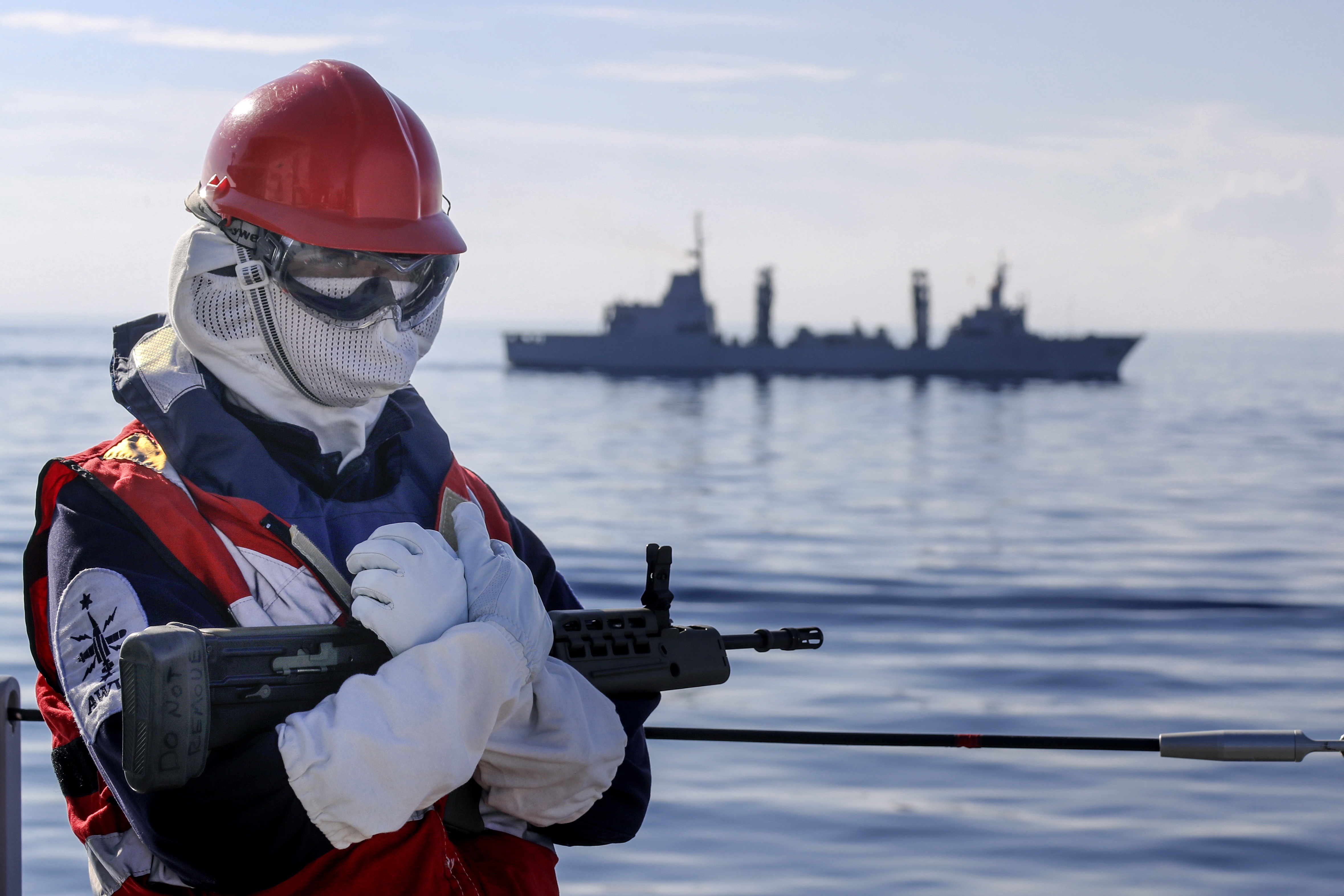
What does Scran mean?
Scran, which almost everybody who has served in the Armed Forces will instantly know to mean food, actually has a deeper meaning.
Its origin comes from the Royal Navy practice of supplementing sailors' diets with additional portions of Sultanas, Currants, Raisins and Nuts – which can be shortened to 'SCRAN'.
According to @OnThisDayRN on Twitter, those supplements were delivered to ship with big SCRAN labels painted on the outside.
Does The Royal Navy Use Slang To Describe Place names?
Yes. In fact, pretty much any location – past or present – that bears Royal Navy history tends to find itself with a unique matelot nickname. Take a look at some popular place names and their slang equivalents:
Guz Devonport
Honky Fid Hong Kong
Pompey Portsmouth
Singers Singapore
This list is not comprehensive - so what would you add to the mix?

